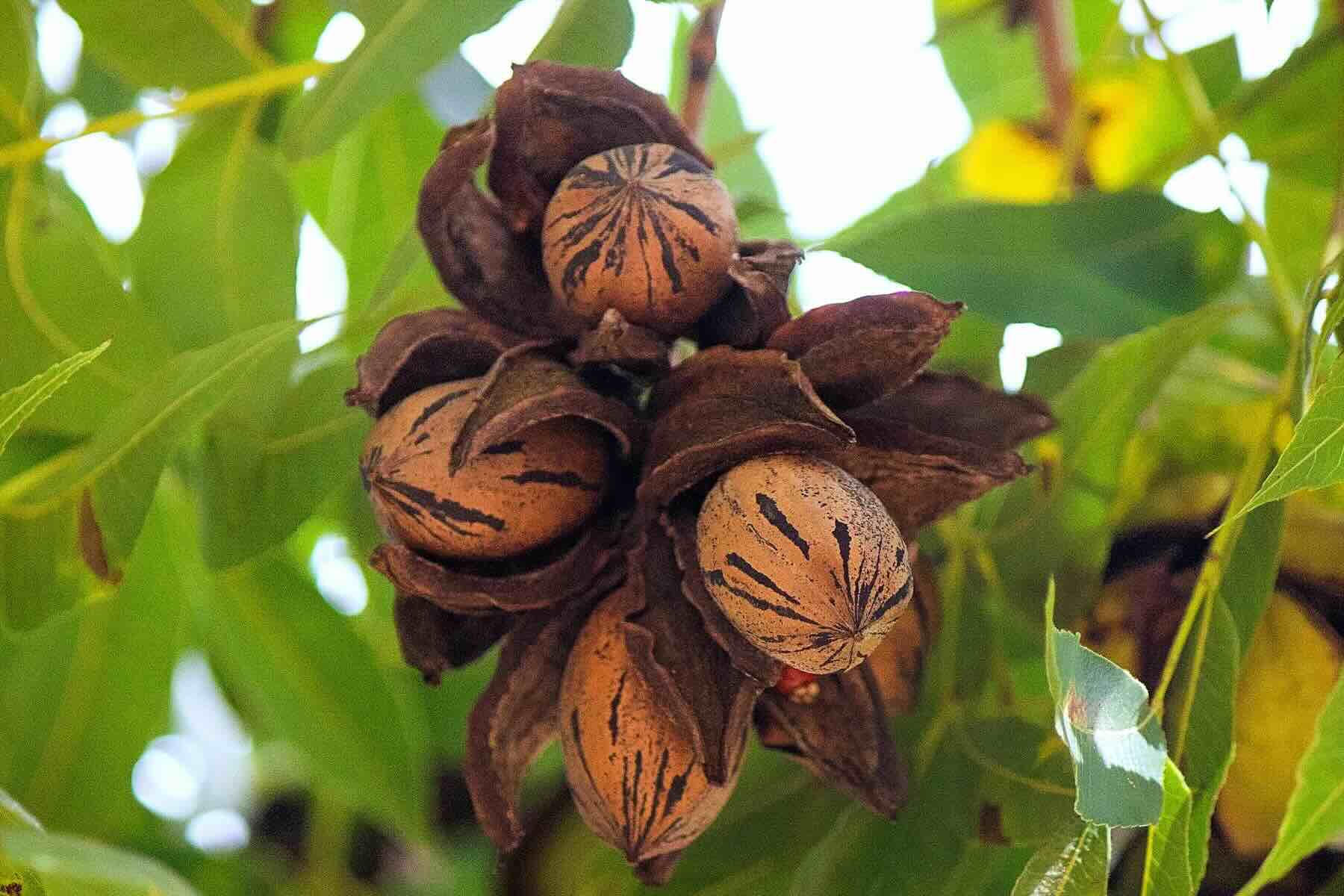
Did you know that the pecan tree is the state tree of Texas? This majestic tree, known for its delicious nuts, has a rich history and some surprising facts. Originating in North America, pecan trees can live for over 300 years, providing shade and sustenance for generations. The name "pecan" comes from an Algonquin word meaning "a nut requiring a stone to crack." These trees can grow up to 130 feet tall, making them a towering presence in any landscape. Pecans are not just tasty; they are packed with nutrients like healthy fats, protein, and fiber. Whether you enjoy them in pies, salads, or straight from the shell, pecans are a versatile and nutritious treat. Ready to learn more about this incredible tree? Let's dive into 28 fascinating facts about the pecan tree!
Pecan Trees: A Nutty Marvel
Pecan trees are more than just a source of delicious nuts. They have a rich history, unique characteristics, and numerous benefits. Let's dive into some fascinating facts about these incredible trees.
Historical Roots
Pecan trees have been around for centuries, playing a significant role in various cultures and economies.
- Native to North America, pecan trees were first cultivated by Native American tribes.
- The word "pecan" comes from the Algonquin word "pacane," meaning a nut that requires a stone to crack.
- Spanish explorers documented pecan trees in the 16th century, noting their abundance along the Mississippi River.
Growth and Characteristics
Understanding the growth patterns and physical traits of pecan trees can help appreciate their uniqueness.
- Pecan trees can live for over 300 years, making them one of the longest-living tree species.
- They can grow up to 130 feet tall, with a trunk diameter of up to 7 feet.
- Pecan trees have a deep taproot system, which helps them access water from deep underground sources.
- These trees are deciduous, shedding their leaves in the fall and regrowing them in the spring.
Nut Production
Pecan nuts are not only tasty but also packed with nutrients. Here's what makes them special.
- A single pecan tree can produce up to 1,000 pounds of nuts in its lifetime.
- Pecans are rich in healthy fats, protein, and fiber, making them a nutritious snack.
- The United States is the largest producer of pecans, with Georgia, Texas, and New Mexico leading the way.
- Pecan nuts are harvested in the fall, typically between October and December.
Environmental Benefits
Pecan trees contribute positively to the environment in several ways.
- They help prevent soil erosion with their extensive root systems.
- Pecan trees provide habitat and food for various wildlife, including birds and squirrels.
- These trees improve air quality by absorbing carbon dioxide and releasing oxygen.
- Pecan orchards can act as windbreaks, protecting other crops and reducing wind damage.
Culinary Uses
Pecans are a versatile ingredient in many dishes, both sweet and savory.
- Pecan pie is a classic American dessert, especially popular during Thanksgiving.
- Pecans can be used in salads, adding a crunchy texture and nutty flavor.
- They are often included in baked goods like cookies, cakes, and bread.
- Pecan oil, extracted from the nuts, is used in cooking and salad dressings.
Economic Impact
The pecan industry plays a crucial role in the economy, particularly in the southern United States.
- The U.S. pecan industry generates over $500 million annually.
- Pecan farming provides jobs for thousands of people, from orchard workers to processors.
- Pecans are exported to countries around the world, including China, Mexico, and Canada.
- The demand for pecans has been steadily increasing, driven by their health benefits and culinary versatility.
Fun Facts
Here are some quirky and lesser-known facts about pecan trees and nuts.
- Pecans were declared the state nut of Alabama in 1982.
- The world's largest pecan pie was made in Texas in 1999, weighing over 41,000 pounds.
- Pecan wood is used for smoking meats, imparting a sweet, nutty flavor.
- Pecans are one of the few nuts native to North America, along with walnuts and chestnuts.
- The annual National Pecan Festival in Alabama celebrates all things pecan, including a pecan-cooking contest and a pecan queen pageant.
The Final Nutty Nugget
Pecan trees are more than just a source of delicious nuts. They hold a rich history, provide numerous health benefits, and play a vital role in ecosystems. From their deep roots in Native American culture to their modern-day culinary uses, pecans have truly stood the test of time. These trees not only offer shade and beauty but also contribute to biodiversity by supporting various wildlife.
Whether you're munching on a handful of pecans or using them in your favorite recipes, remember the fascinating journey these nuts have taken from tree to table. Next time you see a pecan tree, take a moment to appreciate its significance and the many ways it enriches our lives. So, go ahead, crack open a pecan, and savor both its taste and the history it carries.
Was this page helpful?
Our commitment to delivering trustworthy and engaging content is at the heart of what we do. Each fact on our site is contributed by real users like you, bringing a wealth of diverse insights and information. To ensure the highest standards of accuracy and reliability, our dedicated editors meticulously review each submission. This process guarantees that the facts we share are not only fascinating but also credible. Trust in our commitment to quality and authenticity as you explore and learn with us.
